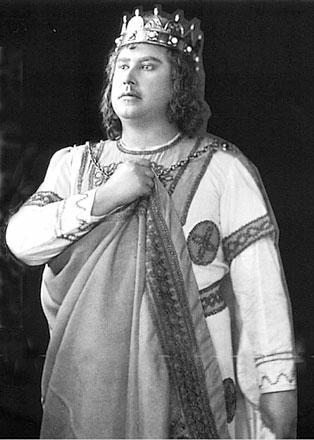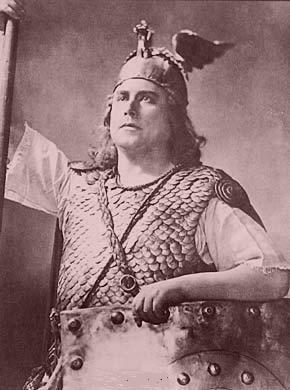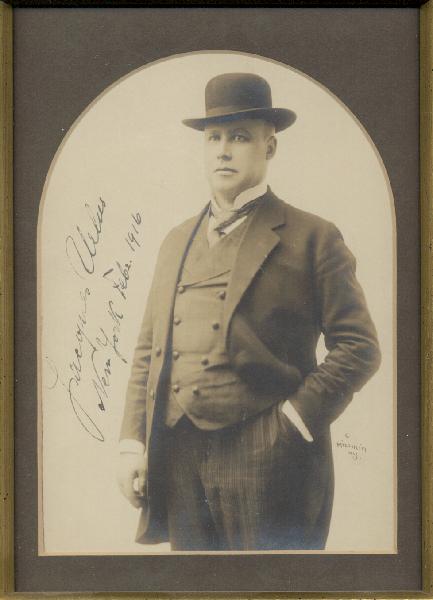The town where Urlus was born belongs to Belgium today and belonged to Germany at the time; Urlus' father was a foreman at a
local iron foundry. However, both parents were Dutch, and they sooned returned to the Netherlands, where Jacques Urlus grew up
in Tilburg. He became a steel worker like his father.
His voice was discovered in an amateur choir, but he was to poor to afford proper vocal studies, and had to make do with
a few lessons every now and then. He was thus largely an autodidact when making his concert debut in 1890, and his operatic
debut in Amsterdam as Beppe in 1894. Soon, his Lohengrin had a good reputation in the Netherlands, and in 1898, he was invited
to sing Lohengrin and Tannhäuser in Hannover. He turned down a five-year-contract offered by the Frankfurt opera house,
because he wanted to have the whole summer off since he nourished hopes of being hired by the Bayreuth Festival, and so he
returned to Amsterdam.
In 1900, he went to Leipzig, which was to be his artistic homebase for the most part of his career. Every year, he would make
guest appearances in Amsterdam and Antwerp; he also sang at the Munich and Vienna Court Operas, the Berlin Krolloper, at
Covent Garden, in Dresden, Frankfurt, Stuttgart, Hamburg and Prague, and at long last, he made his Bayreuth debut as Siegmund
in 1911.
In 1912, he sang in the USA for the first time (Tristan in Boston), then he went back to Leipzig, and to Bayreuth in summer.
From 1913 to 1917, he was the Met's foremost heldentenor. His debut there was a disaster (he sang Tristan, but only one and a
half acts, then his voice failed because he had caught a severe cold), but already his second performance (as young
Siegfried) was a triumph. He did not sing at the Met only, though; he continued to appear in Leipzig (and also at Covent
Garden, at the Théâtre des Champs-Élysées or in Boston), and went back and forth between America
and Europe. His association with the Met ended when the theater banned all German operas (Urlus' main fare) because of World
War I.
He returned to Leipzig for the year 1918, then he lived in the Netherlands and made only guest appearances: Copenhagen,
Stockholm (1918–20), Covent Garden again, La Monnaie (1925–30), Amsterdam, Antwerp, Berlin Volksoper
(1922–25), Berlin Staatsoper (1926/27), the Zoppot and Salzburg festivals, New York once more (Manhattan Opera House,
1923). He retired in 1933.
Urlus' repertory was very vast: while he was best-known for his Wagner (Lohengrin, Tristan, Stolzing, Tannhäuser,
Siegmund, both Siegfrieds, Parsifal), he also sang Tamino (until late in his career!), Florestan, Raoul, Don José,
Faust, Samson, Manrico, Radamès or Otello, plus everything from Bach's oratorios to Mahler in concert.
Reference 1, reference 2, reference 3: Dutch Divas, reference 4: Kutsch & Riemens


